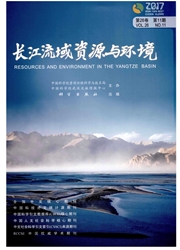

 中文摘要:
中文摘要:
农地整理项目后期管护资金筹措是保障后期管护效果的重要前提。利用武汉城市圈5个县区390份农户问卷调查数据,分析受访农民对后期管护的认知状况和投资意愿,采用Logistic模型对农民参与后期管护投资意愿的影响因素进行实证研究,采用条件价值评估法分析支付意愿分布,测算受访农民的平均支付意愿额度。研究结果表明,村干部身份、农业劳动力数量、家庭人均收入、耕地经营规模、非农收入比例、对后期管护工作内容的认知水平6个因素显著影响农户参与后期管护投资的意愿;研究区农户投资后期管护的年平均支付意愿金额为219.62元/户,7个农地整理区的农户投资后期管护的支付意愿总额数量可观。最后,提出要重视村干部的带头作用,培训农民提高其人力资本,发展农村经济提高农民收入,鼓励耕地流转和规模化经营,而筹措管护资金则必须同时考虑农民的支付意愿和支付能力。
 英文摘要:
英文摘要:
The post-management and maintenance financing of agricultural land consolidation project is an important prerequisite for ensuring the post-management and maintenance effects. However, no research on the postmanagement and maintenance investment has been reported. This paper employed 390 questionnaire survey data of farmers' participation in agricultural land consolidation projects of Wuhan City Circle, aiming at analyzing the cognition on post-management and maintenance of agricultural land consolidation projects, and willingness of investment of farmers surveyed. We also carried out an empirical study on influencing factors of post-management and maintenance investment for farmers to participate in agricultural land consolidation projects using Logistic model. A contingent valuation method was used to analyze the distribution of respondents' average willingness to pay (WTP), and calculate the average amount paid by farmer households. The research results show that, 6 factors including village cadre identity, number of agricultural labor, per capita income in a household, farmland operation scale, proportion of non-agriculture income, the cognition level of post-management and maintenance working content, obviously affected the farmers' willingness of investment in post-management and maintenance of agricultural land consolidation projects. By weighted calculation, the average willingness to pay (WTP) amount of the farmers' investment in post-management and maintenance was 219.62 yuan per household. This paper measured the total willingness to pay of farmers' investment of the post-management and maintenance of 7 agricultural land consolidation projects area. In the end, this paper put forward following suggestions: pay attention to leading role of village cadres to improve their human capital by training the farmers; develop the rural economy and increase the farmers' income; encourage the farmers launch the land transferring and scale of operation, and raise the funds for post-management
 同期刊论文项目
同期刊论文项目
 同项目期刊论文
同项目期刊论文
 期刊信息
期刊信息
